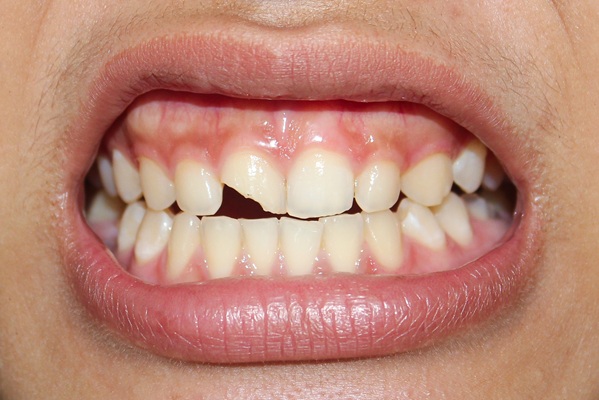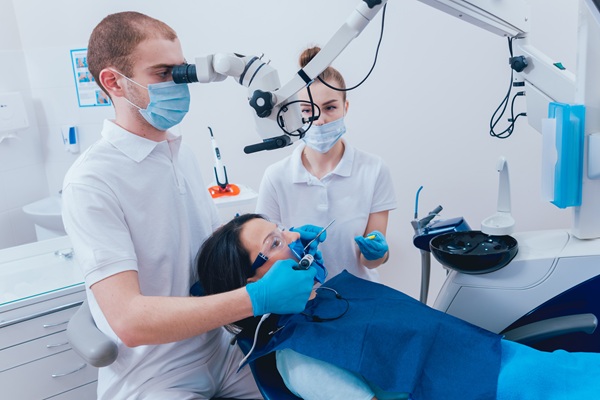 Does Invisalign really work? This treatment is often marketed as a more convenient alternative to braces, but some patients are concerned about its effectiveness. Invisalign® may sound too good to be true — patients do not have to worry about avoiding certain foods that may become stuck in traditional braces.
Does Invisalign really work? This treatment is often marketed as a more convenient alternative to braces, but some patients are concerned about its effectiveness. Invisalign® may sound too good to be true — patients do not have to worry about avoiding certain foods that may become stuck in traditional braces.
Does Invisalign really work?
Like traditional braces, Invisalign® is designed to correct crooked teeth, crowded teeth and gaps. Instead of periodically having wires tightened like with braces, Invisalign® patients are given a series of near-invisible aligners. Each successive set of aligners is designed to push the patient's teeth closer to their ideal alignment.
What factors cause Invisalign® not to work?
One of the advantages of Invisalign® is that it can be taken out when a patient needs to eat or brush their teeth. However, this advantage can quickly become a disadvantage when patients are non-compliant. Most dental professionals advise their patients that they need to wear their Invisalign® trays as close to 23 hours per day as possible.
Because it is easy to remove Invisalign® at any point, some patients go for several hours without wearing their aligners. Even in this relatively short period, it is possible to lose progress. Each time a patient goes without aligners, teeth can shift back to where they were before treatment. When done frequently, this can result in Invisalign® treatment not working.
Does Invisalign really work for all dental issues?
Invisalign® can be used to correct almost every issue that traditional braces can. However, for certain severe issues, a patient's dentist may recommend alternative treatment. For patients with the following issues, Invisalign® may not be effective:
- Extremely crowded teeth
- Teeth rotated more than 20 degrees
- Very large gaps between teeth
- Existing dental bridges or similar types of dental work
- Unusually shaped teeth
Before prescribing Invisalign® or a similar orthodontic treatment, a dental professional will thoroughly examine a patient's teeth to see whether Invisalign® is the right option.
Can Invisalign® cause tooth problems?
When used correctly, Invisalign® will not cause tooth problems. Patients do need to be very careful to brush their teeth before putting aligners back in. Because aligners fit very tightly to the teeth, they stop saliva from reaching the teeth's surface. Without saliva, food particles cannot be efficiently broken down, and plaque, cavities and other dental issues may occur.
In order to avoid potential problems, Invisalign® patients should make sure they brush and floss their teeth after eating and before placing the aligners. The prescribing provider will usually go over optimal dental hygiene with a patient before fitting them with their first set of aligners.
Check out what others are saying about our dental services on Yelp: Dental Services in Tomball, TX.
Conclusion
Patients who have been wondering, "Does Invisalign® really work?" may be relieved to know that with careful compliance and good dental hygiene, the answer is almost always yes. For patients interested in Invisalign® for achieving a better smile, it is a good idea to reach out to a dental professional to make an appointment.
Request an appointment or call Heather Feray Bohan, DDS, PA at 281-864-1581 for an appointment in our Tomball office.
Recent Posts
A broken tooth is one of those injuries that always seem to happen at the worst possible times. A common way that people chip or break teeth is by biting on something hard. Such injuries are more likely to occur when the tooth has already been weakened by tooth decay.The severity of the damage to…
If you have suffered from a toothache, you know the pain can be severe. In some cases, the problem is inside your tooth. Endodontics could be the answer to your situation.Brushing, flossing, and regularly visiting the dentist are vital steps to keeping your teeth healthy. Sometimes, however, your teeth need further care due to disease…
For patients missing multiple teeth, All-on-4® dentures are an excellent restorative option. These implant-supported dentures can transform a patient's smile. Many patients prefer this type of denture, as it is more secure and natural-looking than a regular denture.Before committing to this procedure, patients need to understand the process. The dentist should explain the benefits of…


